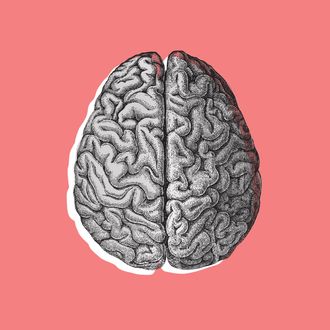
The concept of fairness is a really important part of being human. Our very social species has lived in groups forever, so we’re naturally inclined to keep an eye on who’s getting what and who isn’t doing their fair share. A new study in Proceedings of the National Academy of Sciences from Norwegian researchers lends some interesting new insight to how the brain processes this constantly running concern, and seeks to fill a gap in the research: “There is no direct neuronal evidence,” the researchers write, “of how the brain responds to income distributions when people have made different contributions in terms of work effort.” This is a pretty vital aspect of cognition given its relationship to all sorts of questions of politics and justice, of course.
47 male volunteers took part in the experiment. First, the participants were asked to perform simple office work for either 30, 60 or 90 minutes. Participants were then matched in pairs so that a participant who had worked for 30 minutes was paired with a participant who had worked for 90 minutes and a participant who had worked for 60 minutes was paired with a participant who had also worked for 60 minutes.
After this work phase, the participants’ brain activity was measured using an MR scanner. While the striatum’s activity was recorded, the men were presented with 51 different distributions of 1,000 Norwegian kroner or NOK (approximately 118 Euros) between themselves and the participant they were matched with. After each presentation they were asked to evaluate this split.
As an example, a participant who had worked 30 minutes and who was matched with a participant who had worked for 90 minutes was presented with a distribution that gives 120 NOK (approximately 14 Euros) to him and 880 NOK (approximately 104 Euros) to the other participant. He was then asked to rate this distribution on a scale from -5 to +5; with -5 indicating strong dislike whereas +5 indicated a strong liking.
So how did the brain register these differences in effort and reward? As the release puts it, the “key discovery was that the activation in the striatum in response to receiving more money to themselves depends on how much they have worked. The change in the activation was larger for those who had worked a long time, than it was for those who had worked for a short time.”
It’s an important line of work when you think about how all this stuff functions in real life. Usually, especially on the big political questions about redistribution that tend to drive people apart, we lack perfect information on who’s receiving what and how hard they’re working. Our brain is making inferences, and those inferences profoundly affect how we view the world — and judge our fellow humans.




